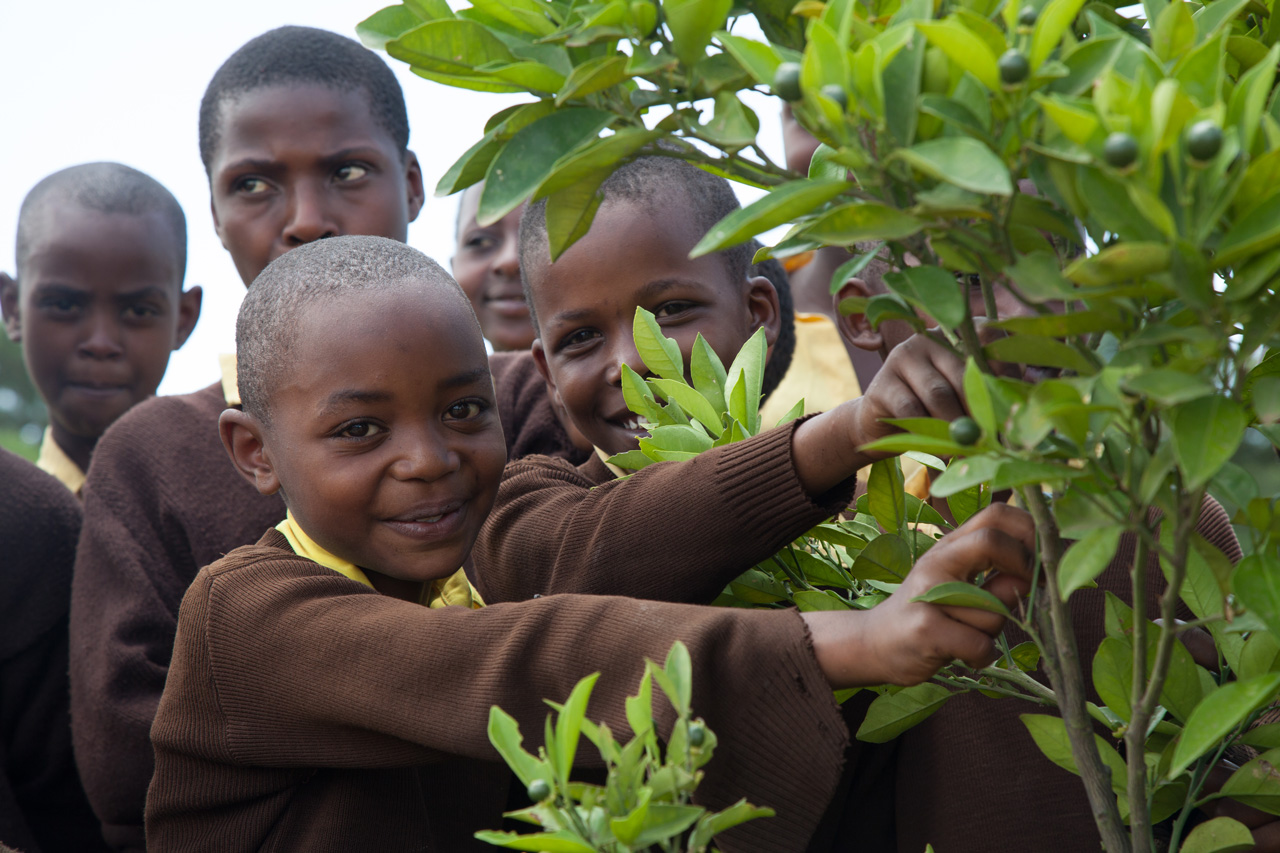A fruit a day
Horticulture in Tanzania to improve life quality

Country
Every day, food rich in nutrients for 8,600 children who are suffering from hunger
In the Northern Tanzanian Maasai Steppe, an area inhabited by herders and small-scale farmers, malnutrition affects around 8,600 school-age children. We became aware of this after conducting three years of research in the area, monitoring the nutritional status of over 20,000 students by measuring their Body Mass Index. To address this situation, we decided to take action by creating fruit gardens in schools and encouraging children to plant and care for fruit trees, which can provide a nutritious supplement to the daily diet of children suffering from severe nutrient deficiencies.
Realising fruit gardens in 18 schools within the Arumeru District, in Northern Tanzania, means that we can guarantee a healthy and balanced diet for 8,600 children that, due to the lack of nutrient food, suffer from malnutrition and other disorders as a consequence of a diet poor in proteins, sugars and micro-nutrients. The body suffers permanent damage: learning abilities reduce and children become more vulnerable to diseases that a healthy kid would easily defeat. Moreover, non-drinkable water consumption and the lack of knowledge of good food habits make this critical situation even worse.
But a small daily action, like eating fresh fruit every day, can make a fundamental difference in the improvement of children health. Thanks to our supporters, in the last 3 years we succeeded in planting 1,500 mango, avocado and orange trees in the schools fruit gardens. We also involved teachers and students in educational activities on nutrition and good hygienic-sanitary habits.
A tree is a concrete and real investment for the future: they need time to produce fruits, however, through years, the seedlings will produce more and more fruit and they will become big, "grown-up" trees (a mango tree can become 40 meters tall!), able to offer, for tons of years, food rich in nutrients to thousands of children. In this way we reduce childhood malnutrition and the consequent physical and psychic developmental delays.
The fruit trees we selected are cheap, live long and do not need much care. Mango is rich in fiber and vitamins, avocado has potassium and many “good fats” that help reducing blood cholesterol-level, while oranges not only can grow in hot and dry weather, but provide also vitamins and minerals that help reinforcing the immune system.
Thank you very much to our eco-volunteers that have helped us on the field and to all of our supporters that throughout the years have contributed to give a better future to these children. Primary schools students are the future of a Country: planting a tree in a school yard in Tanzania is not only a guarantee for a varied and balanced diet for every child, but also an extra opportunity for a whole region to grow.
Il progetto in numeri
180k
potabile in Tanzania
22k+
raccolti a Ibo, Mozambico
52k+
in Mozambico e Myanmar
11k+
di educazione nel mondo
200
di attività economiche
in Tz e Myanmar
1700
in Italia
1700
in Italia
52k+
in Mozambico e Myanmar
1700
in Italia
